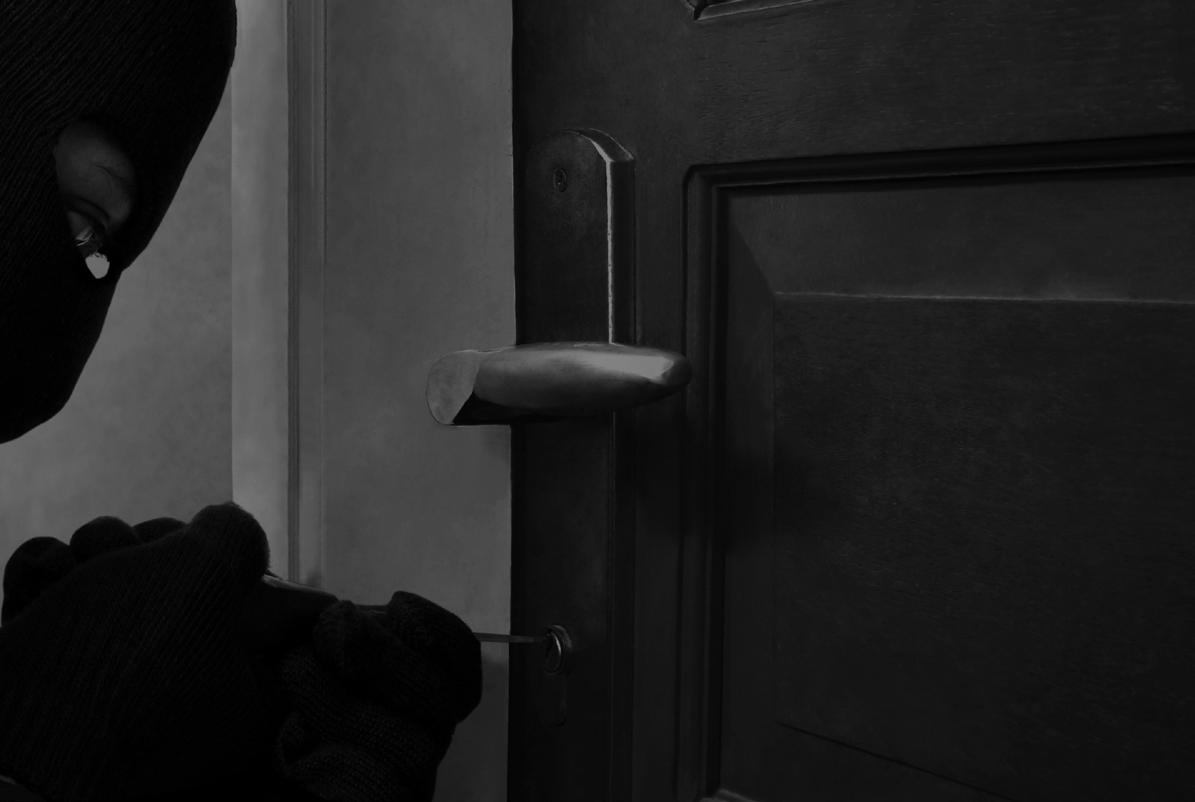SOCIAL WORK NEWS WINTER 22

 The magazine for social workers, by social workers
The magazine for social workers, by social workers





 The magazine for social workers, by social workers
The magazine for social workers, by social workers



“Thank goodness for my social work colleagues,” says Millie Glass

“The most impactful lesson I’ve learned as a social worker is the difference that just one person can - and often does - make.”

‘Sometimes I think I am the only social worker who thinks in a certain way, but when I read Social Work News, I realise that I am not alone. Thank you for your articles - for speaking out.’


This is why we do what we do. These words, taken from a message received late one afternoon as we put the finishing touches to this issue, sums up exactly what SWN is all about.
It’s one of many messages that my team and I have received in the past year, from readers across the globe, which confirms for us that our vision - to connect social workers with one another, and ensure nobody in this profession feels alone - is necessary, and that it’s working.
In the 12 months since our previous winter issue, our small writing team has grown, welcoming more frontline social worker writers, who dilligently deliver regular columns - taking the time at the end of long and busy days to put pen to paper, sharing their views and experiences - because they see the importance of their contributions.
Our audience has also continued to grow. We’re now being read in 160 countries across the world, and our content reaches millions each month, giving social workers everywhere a community, and a place where their voice is welcomed - whether they seek to raise it in celebration, or frustration. We are here - as always - for you, and as another year draws to a close, we thank every one of you for the work that you do, day-in and day-out. We wish you all a peaceful festive season, and a happy 2023.


This will be my tenth Christmas as a fully-fledged social worker.
I love this time of year, both personally and professionally, and think it is a privilege to be a social worker over Christmas, to spend time with children and their families during such a magical season.
In the past decade I have had many different experiences over the festive season, most of which I rightly cannot share, given what my job entails, but there are many more which come time and time again, and seem to be the same for all social workers. So here is my list of things that every social worker experiences at Christmas:
In order to ‘meet the operational needs of the organisation’ (a phrase I am sure you are all too familiar with) there is a need to have a certain number of social workers available at any one time.
In most teams I have worked within, it has been two social workers and a manager required (although the managers often cover more than their own team at Christmas to afford everyone time off).
This means there are always arguments over the Christmas rota, especially between Christmas and New Year.

Secret Santa is a far more stressful experience than its twee name implies.
How much should the limit be? Should I go over the limit and risk seeming flash, or stick to it and appear thrifty?
When you do decide, there is the unenviable fear of pulling out the name of someone you hardly know and hoping the tried-and-tested ‘bottle of red wine and box of chocolates’ combination pays off again.
Then, when you have finally got a present, there is the hassle of arranging one day when everyone is in the office to share presents, which has become even harder post-Covid.
A tenner in an envelope will be best for me thank you.
I am far from what you would call a wild man. My hedonistic days have long since passed me by and have been replaced with such joys as getting excited over a new soup flask or buzzing off a new fleece.
That being said, I still enjoy the occasional tipple and live in fear of having one too many at the work Christmas party and ending up making a fool of myself. Yet, at the same time, do not want to appear too prudish.
It is quite a line to walk, and frankly a dilemma I could do without.
In every council I have worked for there has always been a group of local charities that come together at Christmas to donate presents and hampers to the people we support.
It is one of the best things about being a social worker at Christmas and it is great to help deliver these gifts on behalf of charities.
I bet every single person reading this will have a large room (or four) taken up with presents and hampers this festive season. I am also confident that there will end up being a fair few battles over getting the presents you want for the people you support.
My working pattern for the past decade (rota pending, see point 1…) has always been to work up until the last day before Christmas, then take off the gap in between Christmas and New Year.
This often means working Christmas Eve itself and, given most people like this day off, I am regularly one of the only people in the office.
From the moment I walk in I’m counting down the seconds and, every hour or so, will update the team WhatsApp group of the approaching deadline. The last hour gets very stressful indeed - I once had a colleague call me from a withheld number at 4:59pm knowing it would scare the socks off me!


Ilove this time of year. Y’know… like, really, really love it.
My idea of heaven is strolling around a Christmas market in winter woollies and Ugg boots, sipping a glass of mulled wine, listening to festive songs, and eating... so much eating!
As with most fun things I’d really much rather be doing, my job does tend to get in the way of all this festive cheer. Perhaps that’s a tad unfair because Christmas can be a nice time to be a social worker. There is, after all, the Christmas night out to look forward to (back this year after a two-year Covid-induced break), lots of excited children to ask about their Christmas wishes, and it’s always nice to hand out presents on behalf of the local charities who donate them at this time of year.
It can also be a relatively (dare I say it…?) quiet time of year... (watch me now get a referral in at the last minute on December 23rd!).
break as well! (I’ve drawn the short straw again this year and will be working all the unsociable days - my reward for being childless).
However much the job of a teacher appeals to me at this time of year, over that of a social worker, there’s another job I’d much rather have.



The big kahuna. The main man. The CEO of yuletide, Father Christmas. Perhaps you’d see me as more of a Mrs Claus, sitting back at home in the North Pole, baking cookies and cheering my husband on from the side-lines (whilst hammering the sherry)? But no, I want to be the Big Dog.
You see, not only do I want to be Father Christmas for all the good he does in the world and all the joy he brings (of course…), but also because he appears to be almost entirely devoid of rules and regulations.
You get presents from the children’s parents too. And the proper Christmas
There doesn’t even appear to be the need for any reports following this assessment, just a simple name on one list or another.
Despite the fact he has around 2 billion children to visit, I don’t think there are any visits to record. He’s in and out in nanoseconds and doesn’t have to be back again until the same time next year. No two or four-week timescales! Imagine the mileage he can claim too…
AS MUCH AS IT CAN BE NICE TO BE A SOCIAL WORKER AT THIS TIME OF YEAR, THERE ARE OTHER JOBS THAT I IMAGINE ARE A LITTLE BIT NICER. I THINK BEING A PRIMARY SCHOOL TEACHER WOULD BE FUN; SPENDING ALL OF THE LAST WEEK IN SCHOOL MAKING CRAFTS, WATCHING MOVIES, AND GOING TO THE LOCAL PANTOMIME.
AS FAR AS I’M AWARE, THE ONLY PAPERWORK OLD SAINT NICK HAS TO DO IS A RUDIMENTARY ASSESSMENT BASED ON WHETHER CHILDREN HAVE BEEN ‘NAUGHTY’ OR ‘NICE.’
s social workers, we are constantly learning - and not just because we’re mandated to by copious CPD requirements.

With each new interaction with our charges we learn a little more about them and, at times, a lot about ourselves. Every supervision provides us with a chance to reflect and develop. Even the most mundane of meetings grants us insight...though, granted, that’s primarily regarding our capacity to tolerate the tedious. The most profound of lessons I’ve
Alearned in the years since I stepped out of university hasn’t been the power of language (saying ‘quiet’ anywhere near the duty phone imparted that wisdom), the necessity of practical dress (accidentally flashing a service manager left me quite enlightened), or even the importance of self-care (watching colleagues smoulder their way to burnout has been a harrowing exemplar).


the edges of the carpet we’ve parked ourselves upon, the colleague who chooses to pull up their own patch of low-pile alongside us, in a muchneeded show of solidarity, makes that moment a less lonely one.
When returning home at an hour that finds the rest of our household sleeping - on account of making an emergency placement half-way across the country - the illumination of our phone screen with a well-timed (if dubiously selected) GIF in the work WhatsApp can find our tired expression quickly replaced with a smile.
Whilst sitting alone on the worn floor of the office, after escalating a case to PLO, with our faith more frayed than
THE
IMPACTFUL
I’VE LEARNED AS A SOCIAL WORKER IS THE DIFFERENCE THAT JUST ONE PERSON CAN MAKE.
A CUP OF COFFEE TENTATIVELY PLACED ON THE EDGE OF OUR DESK WHEN WE’RE SIMULTANEOUSLY NEGOTIATINGMillie Glass
CONFLICT OVER THE RECEIVER, AND CALCULATING WHETHER A WELL-TIMED CAREER CHANGE MAY JUST BE THE ANSWER, CAN BE THE THING THAT GETS US TO CLOSE THAT ‘INDEED’ JOB LISTING WINDOW DOWN.

Just one of my social work colleagues can make such a difference for me. Our drive to persevere can be renewed simply by the presence of our teammates. The same is true for our charges, too. The difference each one of us makes extends beyond the confines of the office and the content of the work chat.
It’s incredibly easy in such turbulent and uncertain times to doubt the
impact we can make as individual practitioners. When we face a cost of living crisis, energy crisis, crisis of public confidence and, invariably, a duty crisis to go along with it on a Friday afternoon, our faith in our role can fade almost entirely.

Yet for a young person who has lost the life they’d known with their family, the city they knew to be home, and the friends that usually support them - one consistent face in a sea of change can be an anchor to their identity.
For the parent who is facing the prospect of starting over - having made the best choice for themselves and their child, yet finds themselves without a support network as a result - the familiarity of one individual who
knows the strength they possess, and the sacrifices they have made, can strengthen the belief they hold in themselves.
When a child watches the streetlights flash past the window from a car seat, not understanding why they’ve left their home in haste with nothing more than a rucksack, a promise of ‘see you soon,’ and a reassurance they’ll be safe with ‘lovely people’ - one known quantity in the front seat can provide a marginal sense of safety at the edges of their confusion.
So if just one of my social work colleagues at any given time can make such a difference, it’s heartening to consider what an entire profession filled with us can do.
Twas the night before Christmas, but work wasn’t done Social workers on duty were missing the fun. The phone kept on ringing; new emails were read, Responding to issues before going to bed.
While the rest of the world clocked off for Christmas
The emergency duty teams stepped into business.
A child needed placement, care had to be found, A family in hardship meant endless ringing around.
A mental health crisis needed urgent attention, An AMHP and two doctors assessed for detention. A teen boy went missing, so police had to be called. A woman with dementia had another fall.
There was so much to do in so little time, Casenotes needed writing before Christmas bells chimed. The pressure was mounting, but no one was glum, They all pulled together to get the job done.
There was coffee a-plenty, mince pies and cake, All the humour and banter a department could take. For this is what social care staff always do, In tough times, they dig in their heels and work through.
No matter what happens: no judgement, just care, Compassion, and kindness will always be there. The hour may be late, but they wait for your word. The phone will be answered, no voice gone unheard.
So from all of us here at Social Work News: As we turn off our laptops and kick off our shoes Out of hours staff, we’ll raise our glasses to you Merry Christmas and thank you for all that you do.
 By Tilly Baden
By Tilly Baden
With Christmas just around the corner, our thoughts are already turning to mulled wine, mince pies, and family-sized boxes of Quality Streets.
And while the top item on all of our wishlists is a few days off work, we believe these are five other things that any social worker would love to find in their stockings come Christmas.
How many of us are dealing with push button phones that wouldn’t have been considered hi-tech in the 90s? Add to that cracked screens, missing chargers, dead batteries, and poor signal…
The past couple of years have seen us all grappling with the impact of the Covid pandemic. Whilst some of you found a better work/life balance in the continued shift towards more home working, many of you struggled being away from the office and having limited contact with others. We’re hoping that in 2022 you’ve made strides towards striking that harmonious balance we all seek, and wish that 2023 brings you the work/life balance that suits you.
Paperwork; it is just about the number one gripe of every social worker.
And forgetting the sheer quantity for a moment, most of us are having to contend with outdated, ineffective, and buggy recording systems that lead to unnecessary duplication, pointless mandatory boxes, frequent roll backs, and sudden losses of work.
Since Santa seems unlikely to be able to do much about the paperwork itself, we’ll happily settle for a new and improved case recording system.
In honour of these first-world problems, we are wishing on a star for a brand new mobile phone (that actually works!) for all of you this festive season..
If paperwork is the number one gripe, then caseloads must be pushing hard for the top spot among social workers.
Despite government claims that the average social worker only has 16 children on their caseload (!) we think it is a lot higher.
We also think that manageable caseloads lead to happier social workers, more stable teams, and better outcomes for the people you support.
In honour of all those benefits, our third wish this year is for a lower caseload.
It’s no secret that social workers are not paid well enough for the work that you do, that your wages do not reflect the effort and responsibility of your jobs, and that the ongoing cost-ofliving crisis means most of you have experienced a real-term pay decrease in recent months and years.
Our fifth and final wish is for a higher wage all round.
A 50% boost sounds about right to us?
very social worker should be allowed to being their dog to work... o r a cat, or a rabbit, or indeed any other animal that would brighten their day!
You might be thinking that I’ve lost my marbles. How could a social worker bring a pet to work with them, especially if they work for a local authority, based in a council office?

Not only is it feasible - I’ve done it! As a social work manager, I have challenged the status quo and established a ‘bring your pet to work’ scheme.
EBut how, I hear you ask? There’s no way that bureaucracy and red tape would allow that. There would be chaos! What if someone is allergic to animals? What if the pet wees on the floor or chews the furniture? Is there a risk assessment? Is there adequate insurance in place? Who is liable? Do we need a care plan for the pet? How will other workers focus with an animal in the office?
The truth is, the covid pandemic has forced us all to think differently about the way we work. Many social workers spent the majority of their time working from home during lockdown, with the exception of continuing to conduct face-to-face home visits when there was a vital safeguarding need for the visit to take place. Overnight, we went from a predominantly office-based workforce, to one that was working in kitchens, dining rooms, living rooms and even bedrooms across the country.
The boundaries between home life and work life were blurred.


Many people adopted new pets during the first lockdown, with global pet adoption rising by 250% during 2020, as people sought the comfort of animals while separated from friends and family due to pandemic restrictions. People also valued the countless mental and physical health benefits attributed to pet ownership.
Of course, as the world has moved back to some semblance of normality, we know that social workers benefit from coming into the office, at least occasionally. Social workers thrive on having that informal peer support from colleagues in person which is tricky to replicate when the workforce is solely working from home. But what about pets that have become accustomed to owners being with them at home? How could we relieve some
IS IT PROBABLY ONE OF THE MOST POPULAR SCHEMES I HAVE EVER SET UP, MY TEAM LOVE IT - AND MORALE IS THRIVING.Tilly Baden
of the stress for pet owners, and make returning to the office more attractive?

Simple! Set up a scheme to let team members to bring their pets to work!

When I floated the idea during a team meeting, I was met with overwhelming excitement. Listening to the enthusiasm from my team made me realise that I had to turn this idea into a reality
The first step was to devise a proposal to take to my fellow managers. I knew that everyone would need to agree to the proposal before the first pet could set one paw over the threshold. I admit I was anticipating some resistance, but
everyone loved the idea!
We agreed that we would allow one pet into the office one day each week. If anyone had any allergies or wasn’t keen on animals, they would know in advance that a pet would be present so could choose to come into the office on a different day.
We set up a rota where people could book their pets in, so we didn’t have a pet free-for-all (we had visions of chaos with dogs, cats and other animals all chasing each other around the office out of control like a comedy sketch).
We wrote a disclaimer where the owner would ensure they had appropriate third-party liability insurance and the owner took responsibility for their pet’s welfare, behaviour and any damage caused. After that, we were good to go.
THE FIRST DAY A DOG WAS BROUGHT IN, I’VE NEVER SEEN THE OFFICE SO BUSY. PEOPLE
There was a little disruption when the dog arrived and colleagues wanted to say hello, but after this initial buzz, people settled down to work and the dog co-existed in the space perfectly. Whilst this scheme is still in a trial phase, I’m over the moon with its initial success. It goes to show that bureaucracy doesn’t need to be a barrier to creativity. Leaders need to have the courage to take positive risks and listen to feedback from their team.
I am now a firm believer that every social work office should be a petpositive space, and that every social worker should have the opportunity to bring their pet to work if they wish.
Let’s see if we can get this rolled out across other social work offices up and down the country.


There’s a reason Fairytale of New York is such a favourite at this time of year.
As much as we all want to embrace the Christmas spirit and cheer, we’re also collectively drawn to a bit of doom and gloom. That’s human nature for you; we’re inclined towards negativity because we need to know what can go wrong in order to prepare ourselves.
Although the end of the year might seem a good time to reflect on all that has gone wrong in 2022, I am calling for a change in perspective. I already know how easy it will be for you to focus on the negative. I know that you won’t find any difficulty in recalling the worst work days you have experienced this year - the toughest meetings, the longest phone calls, the numerous and creative expletive names you have been called - because that’s just how the brain works.
I KNOW IT’S BEEN HARD - IN MANY WAYS, SOCIAL WORK ALWAYS WILL BE - BUT FOR THE NEXT FEW MINUTES I WANT YOU TO GENTLY PUSH THAT ASIDE AND, INSTEAD, CHOOSE TO FOCUS ON SOME OF THE GOOD DAYS YOU HAVE HAD THIS YEAR.

To function, to progress, and to continue in our thankless jobs sometimes we have to be the ones to focus on the positives, big or small, in order to keep moving forwards.
So stay with me, let’s take a moment to reflect (because social workers love a bit of reflection…) either by yourself or with your team, and focus on some of the good parts of the year.
If there’s one thing we social workers know how to do, it’s laugh. We can even do it whilst crying. Whether it’s
your own funny story, an unbelievable tale that ends with a wry ‘only in social work,’ or something shared by a colleague that left the office in stitches, hold on to that joy.
Even if you spend 90% of your time complaining about it, you studied hard to qualify as a social worker. You sacrificed and worked and now you are doing the job you set out to do. You might have certificates, training, new job roles and responsibilities to celebrate, but even if your progress doesn’t have formalities attached to it, your skills and abilities will no doubt have developed over this past year.
Can you think back to the best (work) day you had this year? Maybe you finally closed a case because things went well for a family? Perhaps you made a major breakthrough in a working relationship? It might have been a day you got a thank you, or even just a smile. In this job, it’s sometimes the smallest moments that are the biggest and brightest. Hold on to yours.
Social workers never stop learning, it helps us grow and develop. Think back to how much you have achieved this year, the lives you have impacted, the care you have shown, and the empathy you have shared. What have you learnt? If you could give one piece of advice to yourself 365 days ago, what would it be?
Celebrating social work is hard going, and not something we are naturally inclined to do. Social work is not easy, because life is not easy. But just because there are negatives, it doesn’t mean we can’t balance them with strengths, celebration, and little moments of joy.
Happy new year social workers. You are doing an amazing job.



Sleigh bells ring… are you listening..?
We would be, if we could hear them over the alarm bells sounding in our inboxes from twelve different schools sending over ‘urgent concerns’ that have been logged on their own systems for weeks.
An influx of concerns at this time of year really is the social work equivalent of getting coal in your stocking. Especially given it tends to occur alongside…

Eleven case notes missing Ten voicemails waiting Nine assessments needing sign off Eight core groups looming Seven IRO’s alerting Six PEP’s outstanding Five duty visits
Four SERAFs to be updated Three referrals pending
Two colleagues nearing burnout …. and a partridge in a pear tree.
The data report will helpfully turn a festive shade of red, just as the week draws to a close.
The computer system will repeatedly decide it’s knocking off early to mark the occasion, taking that almost completed case note with it every bloody time.
FOR ANYONE WHO THINKS LAST-MINUTE CHRISTMAS SHOPPING IS STRESSFUL, THE WEEK BEFORE CHRISTMAS FOR
SOCIAL WORKERS IS AKIN TO SHOPPING FOR EVERYONE FROM YOUR SIGNIFICANT OTHER TO YOUR THIRD-COUSIN-TWICEREMOVED, AN HOUR BEFORE THE SHOPS SHUT ON CHRISTMAS EVE. .
The list of things we social workers need to get done in this time is a lot like Santa’s sack - bottomless.
Yet it still remains the most wonderful time of the year, both inside of our offices and out.
Inside, whilst the stresses are running high, they’re also sparkling thanks to the glitter that attaches itself to every article of clothing we own courtesy of a seasonal direct work session.
THE DUTY DESK IS STILL UTTER CHAOS, THOUGH THE COLLEAGUE SITUATED THERE IS LIKELY WEARING A FESTIVE HEADBAND. THIS HAS PROVEN AN EFFECTIVE WAY TO BOOST MORALE, ON ACCOUNT OF THE INCONGRUOUS NATURE OF YOUR TEAMMATE DECLARING THEY’VE “HAD ENOUGH” - A STERN LOOK ON THEIR FACE WHILST TWO FLASHING CHRISTMAS PUDDINGS FLAIL AND BOP MANICALLY, AN INCH ABOVE THEIR HEAD.
The dilapidated decor of the office even takes on a new lease of life when it’s obscured by tinsel that predates the Titanic.
Instead of crying inside our cars at this time of year, we social workers are far more likely to be found standing
behind them, playing a far cheerier version of ‘car boot jenga’ than usual, loading up toys, clothes and festive treats which will provide parents and carers with the relief of knowing their own little elves won’t be overlooked on Saint Nick’s round.
A relief that will be felt by many this year, even more so than in years past.
Knowing we can do this thanks to the generosity of those who support the toy appeals nationwide each year, with donations and their time, is as humbling as it is heartwarming, leaving us with a renewed understanding of the phrase ‘goodwill to all men.’
Outside of the office, we’ll eagerly look forward to spending quality time with a tin of Quality Street.
Four days away from the office gives us a golden opportunity to finally find the time to rest (once the big day draws to a close), filling our own cups with selfcare, relaxation… and a healthy dose of Sherry.
And most importantly, we get a rare (uninterrupted or rearranged) opportunity to be with those we ourselves most often neglect by virtue of our profession - our own families and loved ones.
We can do this knowing that our charges are in the safe hands of the out of hours teams, selflessly giving up their festivities to ensure the safety of those we support.
Understandably, they’re unlikely to wish it could be Christmas everyday. We certainly do though!

“Considering the age of retirement keeps increasing, I jokingly say that retirement will be a thing of the past by the time I get there, and I wonder whether I’ll end up dying on the job!
“Maybe that is flippant of me to say, but given the state of current affairs, I genuinely question whether a peaceful retirement would even be possible for me and my generation. I suppose that is a question for another day.
“If you’re asking whether I still see myself being a social worker for the rest of my career, I would say probably, yes. I am undecided about where I would like my career to take me, but I would hope that I would still be able to retain my social worker title for the remainder of my working life.
“I love being a social worker. Jobs, roles, and employers may come and go, but my value base doesn’t change. I still want to be a champion of human rights and social justice. I still want to be involved in empowering people to live life to the fullest.
“It’s important to distinguish between a job and a profession. My job pays my bills, and it ends when I turn off my computer at the end of the working day. That is a firm boundary for me. “However, I don’t switch off the social worker part of who I am. That is a constant presence which guides how I view the world and shapes every action I take. For that reason, I don’t think I could see myself being anything other than a social worker.”
Social work trainer, writer, and podcast host
“The simple answer is no, I can’t see myself being a social worker until I retire.
“I plan a gentle, warm, cosy end to my career. I will wear a flat cap, drive a Volvo, and keep a packet of Werther’s Originals in the glove box.
“Occasionally I will sit at a computer, befuddled by its request for a password, but mostly you will find me in the staff canteen getting in everyone’s way and recounting how things used to be.
“MY RETIREMENT PLANS, THEN, ARE NOT COMPATIBLE WITH SOCIAL WORK, WHICH IS TOO INTENSE, TOO FASTPACED, AND TOO FRENETIC FOR ANYONE HOPING TO SLOW DOWN LATER IN LIFE.
“In fact, I am already following a career path that is slowly but inextricably leading me away from the profession.
“Frankly, after ten years in statutory services, I was getting tired of case management – it was all feeling a little samey – but at the same time, I didn’t want to progress upwards and become a manager.
“My solution has been to branch off into the charitable sector.
“I am not wedded to the job title of ‘social worker,’ though I find I am devoted to working with people, helping them, and feeling good about helping them.
“It’s actually quite a sad reflection to think that this desire has pulled me away from statutory social work, rather than embedding me deeper within it.”
VINCE PEART Consultant editor, child protection expert, and independent social worker

“I often worry about the emotional and physical impact that frontline social work has upon me and the long-term damage it may be having.
“Whilst I am in relatively good health as it stands, there is a significant body of evidence that shows the impact sedentary work, long hours spent staring at computer screens and stress has upon people, and I’d be lying if I said it didn’t play on my mind.
“Given frontline social work involves all of those three things, it may be that I am storing up long-term problems for myself despite feeling quite fine at this current time.
“When thinking about matters in that context, I occasionally wonder whether a more physically active and less stressful job may suit me as I enter middle age.
Perhaps the answer might be finding a middle ground in the years ahead, and moving into a different field where I can still use my social work skills, and focus on the parts of the job that I love, but in a way that is more conducive to my own physical and emotional wellbeing.”
Email press@mysocialworknews.com - answers are published weekly at mysocialworknews.com
“ON THE FLIP SIDE OF THIS, HOWEVER, I ABSOLUTELY LOVE MY JOB AND CANNOT SEE MYSELF DOING ANYTHING ELSE ANYTIME SOON.
Sometimes when I talk about my earlier years, I feel like a fraud - almost as though I am talking about someone else and telling someone else’s story.
I guess it is because it was such a long time ago, so much has changed, and there have been so many bumps in the road. I have almost been able to forget that 12-year-old girl who was placed into care for being “a risk to myself.”
The truth is that, from being six or seven years old, my parents had inflicted really awful emotional and physical abuse on me. I always felt it was my fault, as though I was somehow to blame for everything.
It’s hardly surprising that I started to self-harm and self loathe when I hit puberty, leading to overdoses, which ultimately led to social care becoming involved and placing me into ‘care’ for my own wellbeing. It is only once in care that I was able to tell people about my upbringing, and the abuse I’d experienced.

The overdoses and self-harm became more frequent, and before I knew it I was placed in secure accommodation when I was just 12. I was so vulnerable and naïve, but once in secure accommodation I started mixing with older teenagers, some of whom had
been involved with drugs, exploitation and criminal activity. Not surprisingly, desperate to fit in, I started looking up to them and wanting to learn about what the other girls were involved in. My life between the ages of 12 and 16 is a blur. I would be placed in secure accommodation, deemed ‘doing well enough’ to be discharged, placed into an open unit, run away, take overdoses - eventually becoming involved in what was termed “child prostitution” in the early 2000s - and then being placed back into secure accommodation, with the cycle continuing.
We now know this as exploitation. I am not sure how but I would meet men - much older men, some of whom were old enough to be my dad - during the times that I absconded and was introduced to crack cocaine. From the
“LIAR, LAZY, DIRTY, UNLOVABLE” ARE JUST SOME OF THE ADJECTIVES I HAD GROWN
first time I tried the drug, aged 14, I was hooked. During the times that I was absent from care, sometimes weeks at a time, I was exploited, beaten, and encouraged with drugs to sleep with men of varying ages.
I hated myself. I couldn’t see that what was happening was wrong. At the time, I thought I knew best. I thought I was okay; these men really loved me and would take care of me rather than me sleeping on the streets of whatever big city I had ended up in.
For me, things changed when I fell pregnant with my eldest child. Goodness knows how I managed to stop taking drugs and mixing with various associates, but I did, because I desperately wanted to keep my little girl in my care. It was extremely difficult becoming a young teenage mum,


coming off of drugs, having a limited support network, and then eventually moving to another part of the country to keep myself and my child safe.
Being a ‘looked after’ child myself meant I had to go through a residential assessment, which is one of the hardest things I ever did. But I did it and, with support, I succeeded.
My social workers did what they needed to do to keep me safe. They made difficult decisions that were against my wishes at the time, but without them I can honestly say I would not be here today, 18 years later, telling you my story.
ME ANY BETTER OF A SOCIAL WORKER, THEY HAVE GIVEN ME A UNIQUE PERSPECTIVEFROM THE VIEW OF A CHILD IN CARE, TO A YOUNG PARENT WHO HAD TO BE ASSESSED, AND THEN TO MY ALMOST 10 YEARS AS A SOCIAL WORKER.
I don’t tell many people my story but I am not ashamed of it. I am grateful for the support and encouragement my social workers had in me, and I try to hold onto that within my own practice. It has not been an easy journey, but I can honestly say that we, as social workers, hold a very privileged position, and although things are not easy, and we are so constrained, we are lucky to be able to support people during the very worst time of their lives.
AS A SOCIAL WORKER MYSELF NOW, I CAN HONESTLY SAY THAT WHILE MY EXPERIENCES HAVE PROBABLY NOT MADE
The McCallister family is preparing to spend Christmas in Paris, gathering at Peter and Kate McCallister’s home in a Chicago suburb on the night before their departure.
Their youngest child, Kevin (aged 8) is subject to ridicule from his siblings and cousins - with his older brother Buzz stating: “I wouldn’t let you sleep in my room if you were growing on my ass,” after it is suggested Kevin sleep with paternal cousin Fuller who suffers from secondary enuresis.
During this period an unfounded allegation is made by Buzz about the McCallister’s neighbour ‘Old Man Marley,’ who Buzz claims murdered his own family and other members of the community in 1958.
It is not suggested that any welfare checks have ever been completed on Mr Marley to confirm such claims. A police officer attends the home and fails to show any form of identification,

nor do any of the adults within the family home seek assurances from the local police department as to the officer’s supposed claim to be undertaking routine safety checks of homes in the run up to Christmas.
After receiving a pizza delivery, there is no consideration given to Kevin’s dietary requirement of needing a ‘plain cheese pizza’ and this is subsequently eaten by others - with Buzz suggesting the family regurgitate Kevin’s pizza in order for him to eat.
This provocation behaviour results in Kevin naturally responding with challenging behaviour of his own.
Mrs Kate McCallister fails to handle the situation well, allowing Kevin to be called a “little Jerk” by his paternal uncle, Frank McCallister, and - instead of challenging the appropriateness of such language - chooses to instead punish Kevin by sending him to the attic by himself.
Kevin responds in an age-expected manner to the incidents of the evening and, in anger, wishes his family would disappear.
Heavy winds cause damage to the neighbourhood power lines overnight. This causes a power cut which turns off the family’s alarm clocks, causing the members of the household to oversleep.
The family’s dysfunction is further evidenced within the chaotic manner in which they go about leaving the home for the airport. There is confusion, poor planning, a lack of parental oversight, and discord.

These risk factors contribute to Kevin McCallister being left home alone.
Despite there being ample opportunities to identify their error during the taxi journey to the airport, travel to their terminal, and the boarding process, not one member of the family notices that they have abandoned an 8-year-old child. Once upon the airplane, the priority of Frank McCallister is to consume alcohol.
 Vince Peart
Vince Peart
Kevin McCallister awakens to find that he is indeed home alone. Demonstrating signs of delusion and fabrication, he believes that he made this happen and is heard to state: “I made my family disappear” several times over.
The child’s initial joy is soon tempered when he encounters ‘Old Man Marley’ in the street and is scared due to the malicious and vexatious rumours he has heard about the man.

This distressing incident is followed by an encounter with two men who have a significant criminal history and are in the process of perpetrating a spate of aggravated burglaries in the community. Police database checks show them to be known as Harry and Marv. Police intelligence links them to the name ‘wet bandits.’
These two dangerous males make an attempt to break into Kevin’s home but, upon hearing his presence, abandon their plans.
A secondary risk factor is identified
that Kevin may have been watching inappropriate adult films at around this time, namely Angels with Filthy Souls. An unmet need is noted in relation to Kevin’s poor diet during this period. He is said to have existed on a diet based almost entirely of ice-cream and toppings.
departments as to who should assume responsibility for investigating matters. No referral is made to children’s services, no multi-agency meeting takes place, and there are no record checks on Kevin’s family.

22ND
Halfway across the Atlantic Ocean Mrs Kate McCallister realises that she is guilty of child abandonment. She screams “Kevin,” and goes into a state of shock.
Upon arrival in Paris, Mrs McCallister immediately attempts to return to Chicago, but identifies that all flights are fully-booked for the next two days. She is able to call the local police department in their Chicago suburb in order to raise concerns about her son. Significant issues are noted in relation to multi-agency failings. Initially there is confusion between different police
Police decide that a single agency response is appropriate and agree to send a single police officer to check on Kevin’s welfare. This officer makes a tokenistic effort to check on the child, with one visit and one knock on the door, before giving up on his efforts. No further action is taken by any authority. It is later discovered that Kevin was present when police attended, however he did not answer the door to them given the trauma experienced during the earlier efforts to enter the property by the ‘wet bandits.’
Kevin shows a maturity beyond his years this morning and, having been abandoned by his primary caregivers,
assumes a psychological state of imagined adulthood.
He exhibits this altered state by using his father’s aftershave, which results in several neighbours reporting a loud scream, before visiting the local grocery store to purchase provisions.
The shop assistant in the store makes an effort to ascertain why such a young child is shopping, but Kevin is able to rebuff her efforts without further challenge.
He then engages in his first criminal act by leaving the store without paying for a toothbrush. A police officer is alerted to Kevin’s actions and attempts to apprehend the child, but he manages to flee. Kevin displays remorse during his walk back home at his criminal behaviour.

Mrs McCallister is able to find a seat on a return flight to the USA, although this will take her to Dallas, 944 miles from her son’s location.
The people who she manages to purchase a seat from, Ed and Irene
(surnames unknown), make no effort to raise safeguarding concerns of their own.
The ‘wet bandits’ make a further effort to gain entry in the McCallister’s family home, however Kevin is forewarned to their attempt and shows a precocious level of talent in constructing an elaborate silhouette display. This effort convinces the criminals that the home is occupied and they flee the scene. Shortly after this incident, Kevin exhibits significantly concerning behaviour when he convinces a pizza delivery worker that he is shooting at him. It is thought that the employee of Little Nero’s was left traumatised by the incident and was forced to take time off work as a result.

Mrs McCallister boards an internal flight which takes her to Scranton, Pennsylvania. Her efforts to then get a transfer to Chicago prove fruitless as all flights are fully-booked. A member of the public identified as Mr Gus Polinski
(aka: the Polka King of the Midwest) offers to support Mrs McCallister by letting her travel to Chicago with him and his band (the Kenosha Kickers) on their way to Milwaukee. Mrs McCallister accepts this offer and begins the final leg of the journey home to her son.
There is no effort made by either Mrs McCallister or Mr Polinski to follow-up the earlier phone call to local police officers.
The ‘wet bandits’ discover the truth of Kevin’s abandonment and make plans for a third and final attempt to break into the home that night.
Kevin overhears them discussing this matter and is forewarned to their efforts.
A local Father Christmas impersonator reports that he was visited by Kevin, with the child seeking support to reunite with his family. Despite the fact that any such impersonator would have had to undergo safeguarding training, there is no record that concerns about Kevin were raised on this occasion.
Kevin then heads to the local community church. His previous misconceptions of ‘Old Man Marley’ are challenged and changed through a positive engagement between the pair.
Mr Marley shares that he has become alienated from his son and granddaughter, who he is there to watch singing in the choir. Advice should be given to Mr Marley regarding the local family group conferencing service and mediation counselling team.
Kevin returns to his family home and prepares what can best be described as a series of torture devices and ‘booby traps’ in an effort to protect the property from the ‘wet bandits.’ The homemade weapons include:

• Placing toy cars and airplanes on the floor as a trip hazard
• Dousing the front steps and outside basement stairs with water, which soon freezes due to the low temperature
• Hooking a hot barbecue starter on the doorknob of the front door
• Coating the inside basement stairs with tar and placing a long nail on the uppermost step
• Putting glue onto a sheet of plastic wrap, then piling a cart high with feathers and an electric fan
• Laying glass Christmas ornaments on the floor next to a window
• Tying two paint cans to rope
• Preparing an iron and a blowtorch with which to burn and brand
Harry and Marv break into the family home and are subjected to a succession of horrific injuries as a result of Kevin’s actions.
The pair eventually manage to ambush the child but, just as they are about to physically abuse him, Mr Marley rescues Kevin by knocking both ‘wet bandits’ unconscious with a shovel.
Police then arrive at the scene to arrest both Harry and Marv. Despite the fact that an 8-year-old child has been abandoned by his parents for 60 hours, has experienced significant trauma, and has just perpetrated a succession of grievous assaults and attempted murders upon two adult males, it is
decided that it is safe to leave him home alone.
Police officers therefore take no further action and leave Kevin alone in his family home.
Kevin wakes to find that his family is still gone, but soon hears his mother returning. The pair reconcile only to be shortly joined by the rest of the family who were able to eventually catch a direct flight from Paris.
Kevin appears to have made a significant effort overnight to clean up the evidence of his succession of grievous assaults and attempted murders from the night before; the only evidence being a golden tooth that was knocked out of Harry’s mouth.
There appears to be no effort from the police to inform Mr and Mrs McCallister of either their son’s actions, or the risk he was placed at.
No prosecutions are sought for child abandonment and there are no assessments undertaken of Mr and Mrs McCallister’s capacity to care. Records show that no further action was taken.

Senior social work lecturer, Tilia Lenz, drops into the Bite-Sized Lecture hall to explain her latest research, examining the importance of attachments in the workplace.

ttachment Theory (AT) is one of the most influential and underpinning theoretical frameworks in Social Work practice: from decision-making in Family Courts to considerations in Care Act assessments, we are leaning on John Bowlby’s and Mary Ainsworth’s ideas of interpersonal connections and love. As a practitioner and manager in Children’s Social Care (CSC), I previously relied on expert reports on children’s attachment styles to inform care plans and permanency planning. When I supported Foster Carers, I utilised my attachment and trauma informed ‘toolbox’ to create empathy for the child’s behaviour by making sense of their past experiences.
I am taking this knowledge to apply the basic principles of Bowlby’s thinking to examine working relationships in CSC and raise the question: ‘how in tune is your manager?’
Many professionals have been educated to believe that AT is the theory of the relationship between the mother and the infant. However, the focus had mostly been applied by Mary Ainsworth through her famous ‘Strange Situation’ experiment. This has offered plenty of room for criticism on AT itself.
With my research I am aiming to dispel some of these misrepresentations and am going back to Bowlby’s original writing: ‘Attachment behaviour is any form of behaviour that results in a person attaining or maintaining
Aproximity to some other clearly identified individual who is conceived to be better able to cope with the world. This is most obvious when the person is frightened, fatigued or sick...’ Bowlby ND
Social Work and Child Protection in particular can be stressful, if not traumatic, for practitioners. The support we get from our managers and employers is pertinent to our performance. I am exploring how safe workers feel, and if managers can provide a secure base.
BY APPLYING THE BASIC PRINCIPLE OF AT TO THOSE RELATIONSHIPS, I AM INTERESTED TO SEE HOW SOCIAL WORKERS ARE DISPLAYING ATTACHMENT BEHAVIOURS IN THE WORKPLACE TOWARDS THEIR MANAGERS.
The interplay between proximity seeking actions and the manager’s response offers insights into the personal connection and attunement.
My research so far has shown that some countries have developed AT to fit into the boxes of four fixed attachment styles (secure, avoidant, ambivalent and disorganised). Research showed some US Social Services have considered to only employ securely attached staff as attrition rates are lower and practitioners appear to be more committed to stay.
I FOUND THIS AN UNETHICAL APPROACH FROM MY SOCIAL WORK PERSPECTIVE, AND CHALLENGE THE IDEA THAT CHILDHOOD EXPERIENCES THAT INFORM ATTACHMENT PATTERNS
Bowlby provides a very valuable counter argument, and offers the view that people can have relationshipspecific attachments to others, and are not bound by first experiences of connection in infancy. He stresses that individuals can have secure attachments in later life, even though the primary caregiver may not have met their needs in the first year and an insecure attachment was formed.
I am interested how relationship specific attachments to managers can create a professional safety net and a secure base where social workers can make sense of their experiences in practice - much like a child seeking reassurance from their caregivers to then go off and explore the world.

I acknowledge that managers often come into their positions without specific leadership training and have to function in neoliberal organisational structures, which do not necessarily align with social work values. This paradox and the need to provide measurable outcomes at times of austerity adds considerable complexity to the interpersonal links.
Exploring what makes a trustful professional connection is the focus of my research, considering what is needed to seek and receive in-tune feedback on performance.
Ultimately social workers know how powerful trauma and attachment informed practice is to creating positive outcomes for families - why would we not apply the same principles to our professional relationships?
Why am I sat next to a social worker doing the same job as I am, but I’m getting paid much less? Why do local authorities pay more for agency workers than they do their permanent employees?

Many of my colleagues are leaving the local authority for the money that better reflects the complex and challenging job we do. They know the differences in holiday/pension/sick pay and are still willing to do it for financial gain.
Local authorities are rapidly losing permanent social workers to agencies and can’t attract permanent employees. Meanwhile I’m struggling to make ends meet and the social worker sat next to me is on £60k a year. The government needs to take a step back and look at the problem here. - Wren

ear Wren, Thank you for getting in touch and for raising an issue that is felt far and wide throughout the world, both in terms of our own profession and the wider workforce too. I have been employed in various ways throughout my time in social work - as a permanent member of staff, via an agency, through a parachute/project team, as a wholly independent social worker, and on a yearly contract basis.
In this respect, I have seen things from both sides - being in your position where I looked at other workers earning a higher hourly rate for the same job, and as an agency worker who was expected to pick up a high caseload in a state of disarray and work 12 hour days to ‘hit the ground running’ for the sake of the children I was allocated to support.
As a permanent social worker, my weekly take home pay was less than as an agency worker, but I got holiday pay, sickness pay, very generous pension contributions, promotion opportunities, training, and perks that were unavailable to my locum colleagues.
As an agency social worker, my take home rate was higher, but at the expense of the above, and finding opportunities to progress limited.
As part of a parachute/project team, I had a higher take home rate and a capped caseload, yet I was working to the highest standards I’ve ever had to in social work and was subject to
Dperformance management that I had never experienced before or since.
Working independently I am able to bill for work on a case-by-case basis, but this is capped by legal aid rates and I always find myself having to spend many more hours doing the work than I am allowed to claim for - essentially working for free in order to make sure I do the best by those I am assessing (but we all do that in social work so mine is not a special case).
Parking the practical differences, and simply focusing on the financial aspect, people working in agency, project, or independent work will need to self-fund pension contributions, save for holiday pay, account for any time off sick, and pay far more tax and national insurance if employed on a PAYE basis.
There are also less protections and securities in such roles, with many people struggling to obtain a mortgage due to a lack of stability.
PUT SIMPLY, THESE ROLES THAT YOU COMPARE YOUR OWN TO IN UNFAVOURABLE TERMS MIGHT NOT BE QUITE AS APPEALING OR FINANCIALLY REWARDING AS THEY LOOK FROM THE OUTSIDE.
In terms of government intervention on the matter, Ofsted regularly highlights concerns about high rates of agency social workers and we have also seen consideration given to this issue in the Care Review. Further to this, many local authorities are now banding together to create regional agreements in terms of capped rates, and making pacts that they will not employ agency workers
who have recently left permanent positions in neighbouring authorities.
I wait to see how these tactics work as, generally speaking, it is hard to buck the trends of the workforce market when social workers are in as much demand as we are right now.
WHILST THE SUBJECT OF HOW WE EMPLOY SOCIAL WORKERS IS IMPORTANT, I WORRY THAT FOCUSING TOO MUCH ON THIS MATTER RISKS MOVING THE SPOTLIGHT AWAY FROM TRYING TO WORK TOGETHER IN ORDER TO ADDRESS THE ISSUES WE FACE IN OUR PROFESSION.

Agency social workers are a vital part of our workforce and without them we would see many local authorities failing to function, and countless children left at risk. I see brilliant agency workers and brilliant permanent social workers, but the families I work with simply see brilliant social workers.
I have never known any children or parents criticise a social worker because of how they are employed.
I am keen to see what proposals may be forthcoming from the Care Review in relation to this matter but I feel that it is personal preference how people should be employed and, when the benefits of permanent employment are factored in, believe there is very little difference in the financial reward, no matter how they are paid. - Vince
Vince Peart is a consultant editor, child protection expert, independent social worker, and trained counsellor.
This film may be pure cheese, but it tops the list as my all-time favourite. There are so many social work themes to draw on - from Sarah (Laura Linney) putting her caring role for her mentally ill brother Michael above her romance with Karl; to Daniel (Liam Neeson) working through his grief whilst caring for his young stepson; and Karen (Emma Thompson) coming to terms with her husband Harry’s (Alan Rickman) affair. Their stories feel authentic and similar to things we come across every day in social work.
THE CENTRAL MESSAGE OF THE FILM IS THAT LOVE IS ALL AROUND US, AND THAT HUMAN RELATIONSHIPS ARE AT THE CENTRE OF EVERYTHING.
The unparalleled innocence of Buddy the Elf, and his belief in the power of kindness, is refreshing and uplifting. Buddy (Will Ferrell) is adopted by Papa Elf and goes on a quest to New York to find his biological dad. His father, Walter (James Caan), is shocked to learn of Buddy’s existence and initially rejects him.
The bravery shown by both Elsa and Anna in this film is utterly inspiring. In social work, we need to be courageous every day, whether it’s raising an uncomfortable issue during a controversial meeting, undertaking a visit which you fear will turn difficult, or challenging another professional’s opinion, being brave and taking responsibility for our actions are essential parts of the job.

On the toughest days, when self-doubt creeps in, remember the wise words of Elsa and just ‘Let it go.’


Supporting adopted children to learn about their biological family is something which social workers in fostering and adoptive services grapple with every day. Whilst not all reunification processes end as happily, Elf reminds us that positivity can be found in unlikely places.
8-year-old Kevin McCallister reminds us all what we can accomplish when we are determined to protect the things we love. As a social worker though, the lack of parental care for poor Kevin is horrifying, and this film always leaves my safeguarding alarm bells jingling! (See page 22)
AN IMPORTANT
IS THAT PEOPLE WITH HARD EXTERIORS ARE OFTEN MISUNDERSTOOD AND CAN BE SOFTENED BY KINDESS AND EMPATHY.Tilly Baden
Pour yourself a glass of mulled wine, crack open the mince pies, and delve into my favourite Christmas film list, whilst we explore some social work-related messages that will warm your soul and restore your faith in humanity…


In this festive favourite, Iris (Kate Winslett) swaps her traditional English country cottage for Amanda’s (Cameron Diaz) luxurious Los Angeles pad when both suffer romantic heartbreak.
One of the most memorable parts of the story for social workers is when Iris befriends Amanda’s Oscar-winning screenwriter neighbour, Arthur Abbott (Eli Wallach). It reminds me of the number of times that older people get overlooked by society, yet their lives are so valuable.
Arthur has so much warmth and insightful advice to give Iris, and Iris reciprocates his friendship by supporting him to practice walking without his walking aid in preparation for his stage appearance at a gala. Iris looks beyond Arthur’s frail exterior and values him as a fellow human being. This is so simple but, as a social worker in adult services, I know this is a much rarer occurrence than it should be.
Each year, the Grinch (Jim Carey) reminds us that when a child experiences trauma and bullying, without the right support and kindness, this can spark the child into growing up to become the one who bullies and spreads hate themselves.
IN SOCIAL WORK, WE FREQUENTLY COME ACROSS CYCLES WHERE THE ABUSED GO ON TO BECOME THE ABUSERS. IT TAKES PERSISTENCE, EMPATHY, AND LOVE TO BREAK THE CYCLE.
In the Grinch’s case, the person who sees through his mean exterior is Cindy Lou Who. She believes in the Grinch when no one else does.
Social workers must remember to hold onto hope and genuinely believe that everyone has the capacity to change when given the right support.
When George Bailey (James Stewart) contemplates suicide on Christmas Eve 1945, a guardian angel, Clarence Odbody (Henry Travers), intervenes and shows George what the world would be like if he never existed. George realises his worth and changes his mind about taking his own life.
Social workers frequently come across people experiencing mental ill-health episodes and listen to the stories of those contemplating suicide. Using therapeutic techniques, crisis intervention, motivational interviewing and a whole host of other interventions in our toolkit, we work alongside people to support them to find a way out of their darkest depression and find that spark of hope.
You may, if you are so inclined, go on to draw parallels between Clarence and the real-world work of social workers. We are the safety net for people who are at their lowest point and we aim to make the world a better place.
ecently, while reading an article entitled 8 signs you’re ready to become a social work manager , I realised - with a somewhat heavy heart - that I met every criteria.
On the surface, I am pure management material. Just look at my photo. That photo doesn’t say ‘Action Hero’ or ‘Firefighter.’ Not even ‘Apprentice Firefighter.’ That photo screams ‘Manager.’ I have the haircut, the dress sense and the vocabulary of a manager. And yet… I am not a manager. All of my career, I have resisted the pull. Managers spend all their time in meetings, shuffling paperwork,
Rreviewing figures and targets. They fill job vacancies, handle staff disputes, process mileage claims, approve annual leave, organise training. And all for what? So, they can stay later, get in earlier, and receive a little more money. None of this seems like a fair exchange. Worse, still, if you work hard as a manager, and really excel, you get to become a senior manager – which means you are another step removed from frontline practice.
This is the problem in social work. The more you progress, and the more senior you become, the further away from the frontline you get. Keep going and eventually you will become practically irrelevant, living all your life in a conference room, surviving on complimentary biscuits, and tea served from one of those silver tea pumps.

I don’t want that to happen to me, so I have exhausted all other options for career progression instead. As an adult social worker, this has not left much.
This is how easily social workers can become managers. They can do it without even thinking. One day they just find themselves wearing a suit.
Actively resisting the pull into a managerial position is hard, particularly


I HAVE HEARD OF NEWLY QUALIFIED SOCIAL WORKERS BECOMING MANAGERS IN JUST A FEW SHORT YEARS. I KNOW PEOPLE WHO BECAME MANAGERS BY ACCIDENT. THEY WERE JUST ACTING UP, COVERING THE ROLE, AND THEN UNWITTINGLY STAYED ON.
if you are ambitious. Ambition in social work equates to climbing the corporate ladder, one rung at a time. We simply don’t have many other career pathways to follow.
It shouldn’t be like this. Social workers should be able to develop in a multitude of directions. We have an enviable skillset. We could be anything. Why can’t we become therapists, or legal experts, or risk analysts? Why can’t we handpick the part of the job we love most, and specialise in that? Instead, the only thing we can specialise in is the part of the job most of us like the least - sitting behind a desk and looking at spreadsheets.
This is a leap many feel unable to take. Many of us are just too old, too tired, or have too many commitments to give everything up and start over.
Retention in social work has long been an issue, and commonly fatigue and burnout are seen as the chief reasons so many people leave. But maybe there is another problem here: that there simply isn’t anything to stick around for once you’ve fulfilled a frontline role.
Doctors do not have this problem. They can specialise. So can engineers, accountants, architects, and countless other professionals who can all finely hone their craft, getting better and better at what they do while drawing
a higher and higher wage. If social workers want higher wages – say £40k, £50k, £60k a year – management is our only choice. Of course, we could try agency work, but that’s not really career progression so much as a change in your working conditions.
What stops us specialising? I’m not sure. Maybe there just isn’t the money to pay social workers a high salary for developing their expertise, though there’s plenty of money to pay their salaries if they want to transition into management or strategic jobs – and there is no shortage of jobs like these.
We have clinical leads, strategic leads, department heads, directors… Personally I’d do away with all these roles and replace them with vacancies for highly specialised social workers.
Then I’d be first to apply.
SADLY, IF YOU WANT TO DO ANYTHING DIFFERENT, YOU MAY WELL HAVE TO LEAP OFF THE


s I sit here writing up all of your recordings, with the view that you will someday read them, somehow makes the hours dedicated to the task more meaningful.
Recording our final visit together this week made me think of some of the things I would like you to know. We worked together for a long time. So when I told you that I was leaving, you were very upset and I wasn’t surprised. You will have to tell your story again to someone new. I was sad too, though I couldn’t tell you just how much I would miss working with you, or how much you’ve taught me.
AI know that sometimes you feel as though we’re against you. You feel unsupported when we can’t endorse your desire to stay out as late as your friends do, or to have your TikTok public. I understand your frustration when your carer has to ‘clear it with your social worker,’ and I’m unavailable to respond to the request.
I’ve asked you more than once what you would wish for if I had a magic wand. Your most recent answer still makes me smile. ‘Being able to eat chocolate whenever I want,’ you answered decidedly. It’s such a far cry from the first time I asked, and you responded “Mummy not to be hurt.”
The two answers, given 18 months apart, remain juxtaposed in my mind, and will stay with me for the rest of my career. At inevitable moments of despondency, your voice will reverberate and bolster my resilience.
I never did tell you what I would wish for, but the truth is I would wish that I could give you the time you deserve.
I’d wish ‘the system’ we are either side of hadn’t bypassed its breaking point, so that you could have the support you need, as you need it, without delay.
sometimes, even when you can’t explain it, isn’t only justified - it’s shared. I hope that you know just how earnest I am when I tell you that nothing you have lived through has been your fault. I pray that one day, you’ll believe this for yourself.
If I could, I would explain to you how sometimes the decisions that were made, that I sat with you to explain, I didn’t agree with either.
IF I WERE ABLE, I WOULD TELL YOU ABOUT THE TIME I CAME HOME AFTER SEEING YOU, AND SAT UP UNTIL 3AM FRETTING FOR YOU. HOW I RETURNED TO THE OFFICE EARLY THE NEXT DAY AND STAYED LATE WITH MY MANAGER FOR THE REST OF THE WEEK TO MAKE SURE WE WERE DOING ALL THAT WE COULD FOR YOU.
Even though it’s my choice to leave, as you reminded me, it doesn’t mean I don’t care, and it doesn’t mean I’ll forget you.
You’ve had lots of social workers before me. Some of them you remember fondly, some of them less so. When we first met, you weren’t sure of me. I know you haven’t always liked the answers or explanations I have given to you, but they’ve always been honest. Your new social worker will do the same, so I hope you’ll remember this, and that it might help you to connect with them, trust in them and work together.
I’d wish that I could respond to your questions about your experiences as they arise, so that you didn’t have to dwell on them until I had a gap in my diary large enough to give you the comprehensive answers you needed.

I’d like to admit, outside of a supervision room, that my compassion for your parents, and the childhoods they themselves had, doesn’t dampen my anger for the experiences you endured in their care. I want you to know that the anger you feel
In the dead hours of night, when my hopes for your future aren’t competing with the pressures of the day that unmanageable caseloads produce, I’ll recall your aspirations and the dreams I was privileged enough to be privy to, and take heart in knowing that if anyone can achieve them, you can.
I’ll find faith in my profession, recognising the part we’ve had in supporting it.
What I’d really like for you to know, is that your social workers will always care. They may be busy. They may not always agree with you. And they may leave. But they will always care.
THAT’S ONE OF THE BAD THINGS ABOUT BEING A SOCIAL WORKER - SOMETIMES WE CAN’T TELL YOU WHAT WE THINK OR FEEL, EVEN IF WE KNOW IT WILL BE OF COMFORT TO YOU. I COULDN’T PUT MY ARMS AROUND YOU AND WIPE AWAY YOUR TEARS, BUT I KNOW YOUR FOSTER CARER WILL DO THAT FOR YOU AND, IN A WAY, FOR ME.
In th e third week of my first job as a newly qualified social worker, I made a phone call to a parent to arrange a visit.

It had taken about a day-and-a-half for me to build up the courage to lift the phone and dial the number. The lead up to this phone call came in several stages: meticulous planning, scripting (something I still do, and teach today), panicking, deep breathing, thinking about several different negative outcomes that would somehow lead to me being fired, worrying what to say, and carefully outlining everything I didn’t want to say.
After hours of agonising over how many people in the office would hear me speak, I finally plucked up the courage. I dialled the number. A voice
answered. I introduced myself with my rehearsed introduction: ‘Hi, its Vicki from [named] council, is that [name]?’
There was a response. Some back and forth. I was OK. My palms were sweaty but I was holding it together. And then it came. The person on the end of the phone had some issues to share. The issues weren’t with me, they were with all social workers. It wasn’t my fault, but then it was my fault. Within seconds I was the representative of all people who had ever done this person wrong.
My heart pounded. I tried to interject, but this was met with an increase of volume and a ‘don’t you dare try to tell me what you think!’’ There was shouting, swearing, incoherent ranting, and a specific attack on my knowledge, skills and qualification.
I spent 20 minutes trying to work around this. I knew the conversation was running in circles but I didn’t know how to break the cycle. It ended
abruptly. I held my breath, walked to the nearest ladies room, locked the door of the cubicle, and cried.
Experience is the best way to learn, so I’m sharing my story with you in the hope that it may help you to manage your own first difficult phone call, and ensure your conversations are as productive and positive as possible.
The best way to manage a phone call that escalates into verbal abuse is to prepare for it. It’s OK to be clear with people you are working with about how you can best work together.
When you meet someone for the first time, or hand over your contact details, say:‘ We might have to have some conversations over the phone. If I ever feel like we are going in circles, or that one of us is becoming frustrated, I will probably suggest ending the phone call so we can take a pause.’
 Social Work Sorted
Social Work Sorted
Boundaries are always two-way, so if you are being clear on the steps you take, it’s just as important to ask the person: ‘if I call you, what do you need me to do to help it go well?’
I’ve been there. I’ve been very clear that if shouting and swearing continues I’m going to end the phone call. Then the abuse subsides and the conversation continues.
Two minutes later things have escalated and there I am giving a further warning. It is so easy to get stuck in a cycle like this during a phone call, so be confident enough to end a phone call. It may be what the other person needs too.
There is a huge difference between ending a phone call sounding calm and rational, and ending a phone call sounding frustrated.


It is challenging and triggering when someone is hurling abuse at you, telling you that you are incompetent, and that you have ruined their life, all whilst you are trying to balance several spinning plates in any given work day.
But this is all about empathy and understanding. Meeting aggression with defence won’t bode well for future working relationships.
If you are going to end a phone call to prevent yourself from experiencing verbal abuse, and to prevent the person on the other end of the phone from escalating, then you need to commit to debriefing.
Ending a phone call and not ringing someone back within the day is not acceptable. Sometimes it can be a good idea to send a text, if you can, to explain why you ended the call and that you will give the person a call back.
You may need to debrief immediately but also look to resolving the conflict on another date, perhaps in person.
Phone calls are not just difficult for you; they are difficult for the other person. You are at work but they are living life and could be anywhere when you decide to call. I know that I have had debriefs with parents who had no idea that the volume of their voice would be considered shouting. Making sure that you take time to resolve conflict with the person on the phone will teach you so much about empathy and understanding.
So many parents much prefer face-toface contact and I, generally, but not always, find that this always leads to clearer communication.
So if you have to make a phone call then do it. But treat this with the same care as face-to-face interaction.

When it comes to being a social worker, books will only take you so far.
There’s a reason practice placements are an essential part of the training; put simply, real life can’t be translated into text. We are emotional, unpredictable beings, working within human relationships.
When I talk about shadowing, I’m referring to following a fellow social worker as they carry out their day-today duties. I should mention it’s best to have consent – firstly from the social worker, so they don’t get freaked out when you start to tail them every time they stand up to make a brew, but also from the people they are working with; the people whose homes you will be visiting, and whose meetings you will be attending.
I KNOW ONE OF THE BIGGEST CHALLENGES THAT STUDENTS AND NEWLY QUALIFIED SOCIAL WORKERS FACE IS FEELING LIKE A BURDEN - THE SENSE THAT YOU ARE PESTERING AN ALREADY FRAZZLED SOCIAL WORKER WHO REALLY JUST NEEDS TO GET THEIR HEAD DOWN AND BE LEFT IN PEACE TO GET ON WITH THEIR EVER-EXPANDING TO-DO LIST - BUT YOU NEED TO LEARN.
You have a small window of opportunity to develop your practice skills before you are thrown (hopefully gently) into a full time job, so there’s no time to waste.
If you are the frazzled social worker reading this, remember what it was like when you were in this position. If you had amazing shadowing experiences, think about how they helped you. If you had a poor experience, think about the
difference you could make by helping somebody else to have a better one.
If you are just starting out - whether on placement, ASYE or a new job - you *should* have shadowing opportunities arranged for you, and if it’s not happening, you need to raise it. It’s easy to sit quietly by, and not cause a fuss, but ultimately, it’s your skills that will suffer.
Assuming your shadowing opportunities are being arranged for you, it’s important to take initiative alongside this. Check through team diaries, speak to social workers about what they have coming up. Ask, ask, ask. It’s OK to be interested, and it’s always worth asking if you can attend a certain meeting, or visit. The more you do, the more you will pick up.
The general goal of shadowing is to learn by observing excellent practice, but it’s important to be mindful that social workers all practice in different ways and all come into the job with different experiences.
For this reason, when you are shadowing, not only will you learn what to do, you’ll also probably see what not to do. That’s why it’s important to make a point of shadowing different social workers.
If you feel uneasy or unsure about practice you have seen, speak to a supervisor about it. It’s important that respectful challenging continues, regardless of how long a social worker has been qualified.
I know so many students who feel like they missed out on essential job shadowing because of working from home guidelines, but there is plenty of learning we can take from the past
couple of years.
Firstly, you can shadow meetings online. If they aren’t happening in person, there’s nothing stopping you being added into a Teams call, or sitting next to a colleague - in reality or virtually - whilst they are making phone calls. There’s nothing better than soaking up the sounds of your colleagues communicating, wherever that may be.
I know the word is suggestive of something lurking quietly, but shadowing doesn’t have to mean being a passive bystander. If you are going to take part in a meeting or a home visit then make sure you discuss this with the person you are shadowing first.
If it’s OK for you to contribute, then it can be a great way to build your skills. Another way to develop is to practice writing case notes. You can compare yours against the social workers to see if there is anything you missed.
Beware, if you are especially good at this be, make sure your skills are not taken advantage of!
Writing all this has served as a real reminder for me. Shadowing shouldn’t stop once we are qualified, or settled into a new job. It should be a regular requirement.
As social workers, so much of our work is done in isolation from one another. Shadowing or joint visits help us reflect on practice, build skills and get different perspectives. I’d add that - as well as social workers - managers and heads of services would benefit hugely from shadowing face-to-face interactions.
There’s no better way to see how people are impacted by policy.




















In UK society, there are cultural norms and assumptions that affect many marginalised groups, and this book aims to address and challenge these through the lens of the people who have lived these experiences.
The book presents a range of lived experiences alongside a critical commentary on the impact of social stigma, exclusion and marginalisation on people’s lives. This book’s chapters are co-authored by people with lived experience and academics.

Written by Mel Hughes, this book is available now from criticalpublishing. com, priced at £21.99.
A unique, honest and powerful account of what it is like to grow up with learning disabilities in the UK. Richard Keagan-Bull has learning disabilities. He struggles to read and write, but he has dictated his life story to his friend-turned-secretary Hazel Bradley. It is written exactly as he speaks – not necessarily grammatically correct, but with a unique directness and power. This book, which is simultaneously funny and profound, is available from criticalpublishing.com, priced at £18.99.
This book, written by Rachel Burr, challenges current adult-led approaches to working with vulnerable young people, and introduces practitioners and students to creative
methods that will enhance the selfworth of children and teenagers. Available at criticalpublishing.com priced at £19.99.
Mindfulness and social work values go hand in hand and this book is the perfect guide in self-care for social workers who want to incorporate mindfulness into their working lives to positive effect.
Looking after your mental health in your working life is so important so that you can do the best job you can and learning mindfulness is a great way to incorporate this.
This book is available to pre-order now at criticalpublishing.com, priced at £16.99.
Dive into our resources round-up - whether it’s out now, or coming soon, here are a few books we think you should be getting your hands on…

Two thirds of social workers are considering leaving the profession, according to a survey carried out by Social Work News.
‘Overworked, underpaid, and undervalued…’ were answers that came up time-and-time again when we asked our social work readers why so many were choosing to leave the profession, with hundreds taking to our social media to weigh in on the debate.
“For me, it’s not even the deadlines and paperwork,” said Jade, a social worker from Belfast.
“It’s struggling to get services within the community, and constantly feeling like we’re letting our service users down because of it. We should not be celebrating when we get a package of care for our vulnerable.”
Social worker Jennie agreed: “Services are like gold dust these days, getting budgetary approval is like jumping through hoops, service users are fed up of waiting, there’s no appreciation for the role we do, pay is not amazing, stress levels are through the roof. We’re all overworked, underpaid, undervalued, and knackered.”
Even those who said they were not planning to leave the sector admitted the job was not easy. Upon reading comments from other social workers, Lou said: “This makes me sad. I’ve
been doing social work for 14 years now and I still love my job but it is becoming more challenging due to a lack of resources - funding cuts and the national shortages in care and support.”
One social worker, who did not wish to be named, said: “I was speaking with an NQSW who has been in post about 2 months and was sad to hear she has 25 cases and already having impossible demands placed on them. When will local authorities respect the ASYE and help embed them well into practice so they stay?”
Carmen, who revealed she left frontline practice last year, said: “6 years in and last year left frontline CP to be in a specialist CAMHS & trauma team - was the best decision I ever made.
and a 4 month placement. This is full time but I do believe it prepares you for work. I don’t think people are under-prepared but they often have limited support when they start and the workload and expectations far exceed an 8 hour day.
“The lack of resources is forever frustrating and often means you cannot help people move forward and can be deflating leaving people in the same situation they came to you with.”
Jan agreed, saying: “22 years I’ve been qualified and the changes I’ve seen over the years is unbelievable. I’m 61 now and counting down to retirement which I can’t afford to do now, due to the current pension rules! Talk about a rock and a hard place!”
Another social worker said: “In Australia we do a 3 month placement one year
Social worker Lettie declared the profession is “in crisis,” adding: “Posts can’t be filled. We are facing more cuts to services which are already curtailed. Case loads are rocketing making practice unsafe. Existing social workers in teams are going on long-term sick leave due to burnout. Workers are leaving the profession in droves due to excessive paperwork, too high caseloads, ridiculously complicated procedures, constant changes in procedures, cultures of bullying, poor management and lack of funding and resources to help those we should be supporting. I would have been one of them, but I got out of community work and into a safeguarding team - which was more manageable in terms of caseloads. It has a lot less pressure, otherwise I would have left the profession a long time ago. The profession is on its knees.”
“I DON’T THINK SOCIAL WORKERS SHOULD SPEND MORE THAN A FEW YEARS IN FRONTLINE WORK AT A TIME!


Much like Chandler in Friends, every friendship group has that one person who nobody knows what they do for a living...
You know they have a job, as they bought a round of Espresso Martinis last Friday, while making some reference to being ‘ready for the weekend,’ but the specifics completely escape you.
Well before you start snooping through their bins for clues, check out these 5 dead giveaways to see if your friend may just be a social worker.
THEY’RE THE FIRST PERSON YOU TURN TO IN A CRISIS
Relationship on the rocks? Kids that just won’t go to sleep? A boss that’s a bit of a pain?
Don’t worry, because your social worker friend is here, and whatever the situation may be, they’re guaranteed to have the perfect dose of insight and advice to see you through.
YOU ONLY MEANT TO POP ROUND TO THEIRS FOR A QUICK CUP OF TEA, AND TO GRAB THAT CARDIGAN THEY NICKED OFF OF YOU THREE MONTHS AGO, BUT YOU’RE BARELY ACROSS THE WELCOME MAT BEFORE YOU’RE SPILLING ALL OF YOUR DARKEST SECRETS.
Was it the gentle palm resting on your shoulder, or the way they asked if you’re ‘really OK?”
Whatever it was, within 5 minutes they’d dissected your life problems, evaluated them, and sent you home with an action plan and a follow-up
appointment at theirs next Thursday.
Social worker friends just don’t have an off switch.
THEIR LIFE IS A MESS (AS IS THE FLOOR OF THEIR CAR)
Whilst your social worker friend is handing out life advice like they’re centre-stage on an Oprah Christmas special, you can’t help but notice their own lives are a bit of a mess.
FOR STARTERS, THEY OFFERED YOU A LIFT LAST WEEK, AND YOU WEREN’T SURE IF THEY WERE DRIVING A FIAT 500 OR A TRAVELLING TRASH BAG OF HALF-EATEN SANDWICHES AND MCDONALD’S WRAPPERS.
They stopped going to the gym on the day they graduated from university, share their bed with a stray cat they adopted six months earlier, and their idea of good nutrition is an extra Chocolate Orange with their glass of wine (for vitamins).
Not since the White Rabbit have you met a person who was so continuously late to everything. Much like that adorable bunny, they pop into every meal, dinner, or drinks gathering, calling “sorry I’m late” and mumbling for five minutes about overrunning meetings, traffic, and crisis whilst constantly scrambling for a pen. They tell you their working hours are 9-5 but they haven’t made any social event before dessert since 2005.
THEY’RE AS COOL AS A CUCUMBER
Whether you’re confessing to running off with the pool boy, or witnessing a 10-man riot in a pub, your social worker friend is the most tolerant person you know.
It may be the 2 tonnes of Botox they’ve had injected into their foreheads (to disguise how much they’ve aged since qualifying) but there is rarely a raised eyebrow or an open mouth even in the most frustrating of situations.
Whilst you are ready to blow your lid at the incompetent shop assistant, your social work friend is dreamily mooching alongside you, without a care in the world, hardly noticing that the people around you are absolutely impossible.
You can’t understand how they can keep their cool, but whilst you manically head butt the windshield, they’ll be there with a soothing stroke, whispering “So, tell me how that feels.”
Whether your life is in full-blown meltdown, you need a tissue for a snotty nose, a plaster for a cut, or just a friendly cup of tea with lots of laughs, your social work buddy has got you.
You may not realise all the little things in the background they do for you, but you know that without them, your life would be a lot more stressful and nowhere near as fun.
If you have a social worker in your life, hold onto them, cherish them and - for the love of God - get them a pen.
henever I embark on a new social work job role, I always feel the familiar pangs of imposter syndrome creep in - am I good enough? Will my new team like me? Are my knowledge and skills up to scratch?

I know I’m not alone in feeling this way. Whether it presents as a niggling voice at the back of your mind questioning your competence, or whether it is more pervasive and impacts on your selfesteem and mental wellbeing, imposter syndrome is extremely common.
Research estimates that between 60%90% of us will experience imposter syndrome at some point in our lives.
When I feel these thoughts begin to plague my consciousness these days, I give myself an imaginary shake and force the rational part of my brain to
Wstep up. I remind myself that I wouldn’t have gotten the job if I wasn’t capable of doing well and fitting in with the team. My references were examined, and my ability to apply knowledge to practice tested in the interview.
I reassure myself that, whilst there will be a steep learning curve with any new job, I will face the new challenges just as I have done before. I trust that my social work foundation of knowledge, skills, values, and experience will see me through.
Imposter syndrome is when you believe that you are not as competent as others perceive you to be. Some of the most common indicators include fearing being outed as a fraud, feeling unworthy of success, crediting accomplishments to luck, over-preparing, dismissing positive feedback, self-doubt, fear that you won’t live up to expectations, and
being mistrustful of others. Imposter syndrome amongst social workers is rife. Pretty much everyone I have spoken to or supervised has experienced some form of imposter syndrome in their working life, whatever stage of their career they’re at.

There is a fine line between imposter syndrome and healthy doses of selfdoubt. The absence of self-doubt creates arrogance and complacency. Social work is such a complex, everchanging and varied field. None of us could ever be expected to hold all the answers 100% of the time.
Self-doubt crosses into imposter syndrome when it is no longer situation-specific. We all have cases that flummox us, but when you start feeling that all elements of your practice may not be good enough - and there is independent, reliable evidence to contradict these beliefs - it is likely
Tilly Badenthat you have slipped into imposter syndrome mode.
But all is not lost! Imposter syndrome doesn’t have to spiral out of control. It can be overcome with a change in mindset, and these simple tips:
Now is not the time to be modest. I know that many people find selfpraise uncomfortable. British culture encourages us to be humble. But don’t worry – you don’t need to share this list with anyone else, so put all embarrassment and shame aside and focus on celebrating your successes.
Dig out that thank you card from a family member who you supported through a crisis. Look at the drawing from a child who said that you were the best social worker they ever had. Read that report from your practice educator where they wrote about your strengths and commented on the
immense progress you made. Find that email from your colleague where they thanked you for helping to resolve an emergency on duty. Retrieve your degree certificate, look back over your CV, and give yourself permission to be proud of everything you have done.
Sharing your feelings and talking through issues will help you gain clarity and perspective. They will remind you of your successes and be your champion and cheerleader. They may also be able to offer some insight that you haven’t thought about yet.
Relax, I’m not suggesting that you go rogue or practice outside of your expertise. This is more about a state of mind that can help when you are feeling a dip in your confidence levels. Walk into your office and act as though

you deserve to be there. You have worked hard to get to where you are, so show the world what you are capable of.
It takes great courage to admit that you are struggling, so if you need additional help, research your options, and reach out. Many employers offer some form of wellbeing support, so that’s a good place to start.
Whether you have experienced imposter syndrome in the past, or are currently experiencing it, know that you are not alone and there is safety in numbers. Take a deep breath and have faith in your abilities. You are in the social work profession for a reason, so go out there and do your best to help the people who need you.
